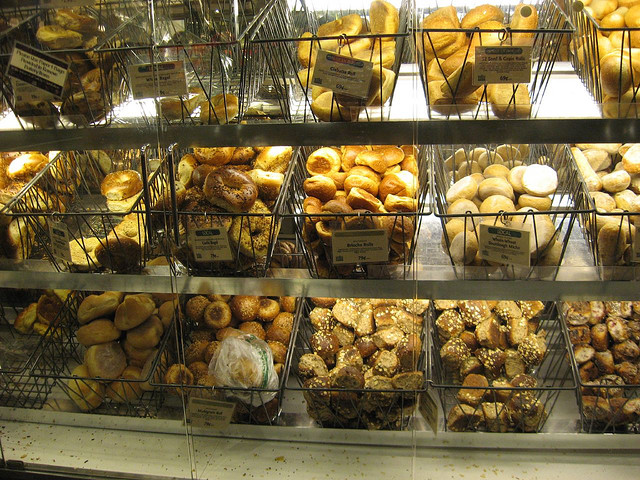Here’s a provocative thought: the blog you’re reading now is a hotbed of sin. This sin is so evil, so pernicious and so destructive, in fact, that it’s able to pass by undetected.
What is this basic, biblical-like evil? Foodie-ism.
Sound laughable? Animal rights activist B. R. Myers made the case in the March issue of The Atlantic:
The book Gluttony (2003), one of a series on the seven deadly sins, was naturally assigned to a foodie writer, namely Francine Prose, who writes for the gourmet magazine Saveur. Not surprisingly, she regards gluttony primarily as a problem of overeating to the point of obesity; it is “the only sin … whose effects are visible, written on the body.” In fact the Catholic Church’s criticism has always been directed against an inordinate preoccupation with food—against foodie-ism, in other words—which we encounter as often among thin people as among fat ones.
In Myers’ biting, perhaps flawed case against foodies, he paints us as sinners against moderation, making false idols out of chefs (“The Roman Historian Livy famously regarded the glorification of chefs as the sign of a culture in decline,” he claims) and turning the simple, humble act of eating into its own phony religion.
Rancher Nicolette Hahn Niman struck back against Myers’ manifesto, arguing that foodies today care more about moderation and sustainability than voracious overeating. But something about Myers’ account sticks with me. I can’t help but wonder about gluttony, that “inordinate preoccupation with food.” I am small and thin – or at least a healthy weight. I eat small portions. But I may be a glutton yet.
A quick read through Wikipedia tells me what I’ve suspected: throughout history, fasting has been associated with goodness, cleanliness and piety. During Lent, Catholics were supposed to eat only one full meal a day – in fact, Catholics used to practice a “Black Fast,” in which their one, post-sunset meal was often comprised solely of bread, salt, herbs and water. Throughout history, some Catholics went even further (if your lunch is resting solidly in your gut, try Googling what St. Angela of Foligno ate. Yuck).
In Buddhism, some monks and nuns have to atone for eating after noon by telling another monk or nun that they’ve done so – this is supposed to make them mindful about their intake. Fasting is one of the five pillars of Islam, particularly during Ramadan, in order to sympathize with the poor and hungry and to achieve Taqwa, or a higher consciousness.
Essentially, all these religions seem to say the same thing: enjoying food is immoral. At best, it’s a distraction from more important matters – at worst, it’s a deadly sin. A big feast numbs the eaters to the starvation of others and dulls the mind to the spiritual realm. Eating cannot feed the soul, no matter how hard Alice Waters tries.
Flash forward to the foodie era – what a reversal. Enjoying food is not only moral, it’s practically sacred. As Myers writes:
References to cooks as “gods,” to restaurants as “temples,” to biting into “heaven,” etc., used to be meant as jokes, even if the compulsive recourse to religious language always betrayed a certain guilt about the stomach-driven life. Now the equation of eating with worship is often made with a straight face. The mood at a dinner table depends on the quality of food served; if culinary perfection is achieved, the meal becomes downright holy—as we learned from Pollan’s The Omnivore’s Dilemma (2006), in which a pork dinner is described as feeling “like a ceremony … a secular seder.”
Restrictions on food are seen as lighthearted, unserious – Myers recounts a story of a Jewish woman who was unknowingly served a meat jelly. “I’ve been kosher for thirty-two years!” she exclaims. “Not any more you ain’t!” the cook rejoins.
Here’s something I want to know – something I don’t have an answer to. I can guess why food is no longer seen as immoral to many – materialism won out over ascetism. But should it have happened? Maybe the excessive enjoyment of food IS immoral – maybe it’s insensitive, or elitist, or materialist.
I find this hard to accept, though. The preparation of food, to me, is an act of love – a long labor for a quick satisfaction. Cooking is humble, it’s simple, it’s relatively inexpensive, it’s done with your hands. Now, there’s a lot about the food system that strikes me as wrong – big fast food chains, careless destruction of our ecosystems, the starvation of many around the globe. But to be grateful for the food we do have strikes me as, well, beautiful. Maybe I’m just patting myself on the back, but I think foodies do have one moral advantage over others: they are fully and completely appreciative of the resources they’re lucky enough to have.
I will, however, make one concession. Oreo-stuffed chocolate chip cookies? TOTALLY evil. There’s a special place in hell – and on my thighs – for those.


Pingback: Tweets that mention On the morality of food | Public Radio Kitchen | Blogs | WBUR -- Topsy.com
Ha, gotta love cookie stuffed cookies. ;)
Funny, I’ve just been reading about this. We can, once again, look to the French for support with this. While gluttony was once considered a sin there too, in the 1800s, there was a movement in the burgeoning field of gastronomic writing to shift from gluttony being “evil” to criticism against those that did not know how to enjoy their food skillfully, thus allowing individuals to have their cake and eat it too … so long as they knew how to enjoy it!
Pingback: The question of gluttony… | Groundcherry's Blog